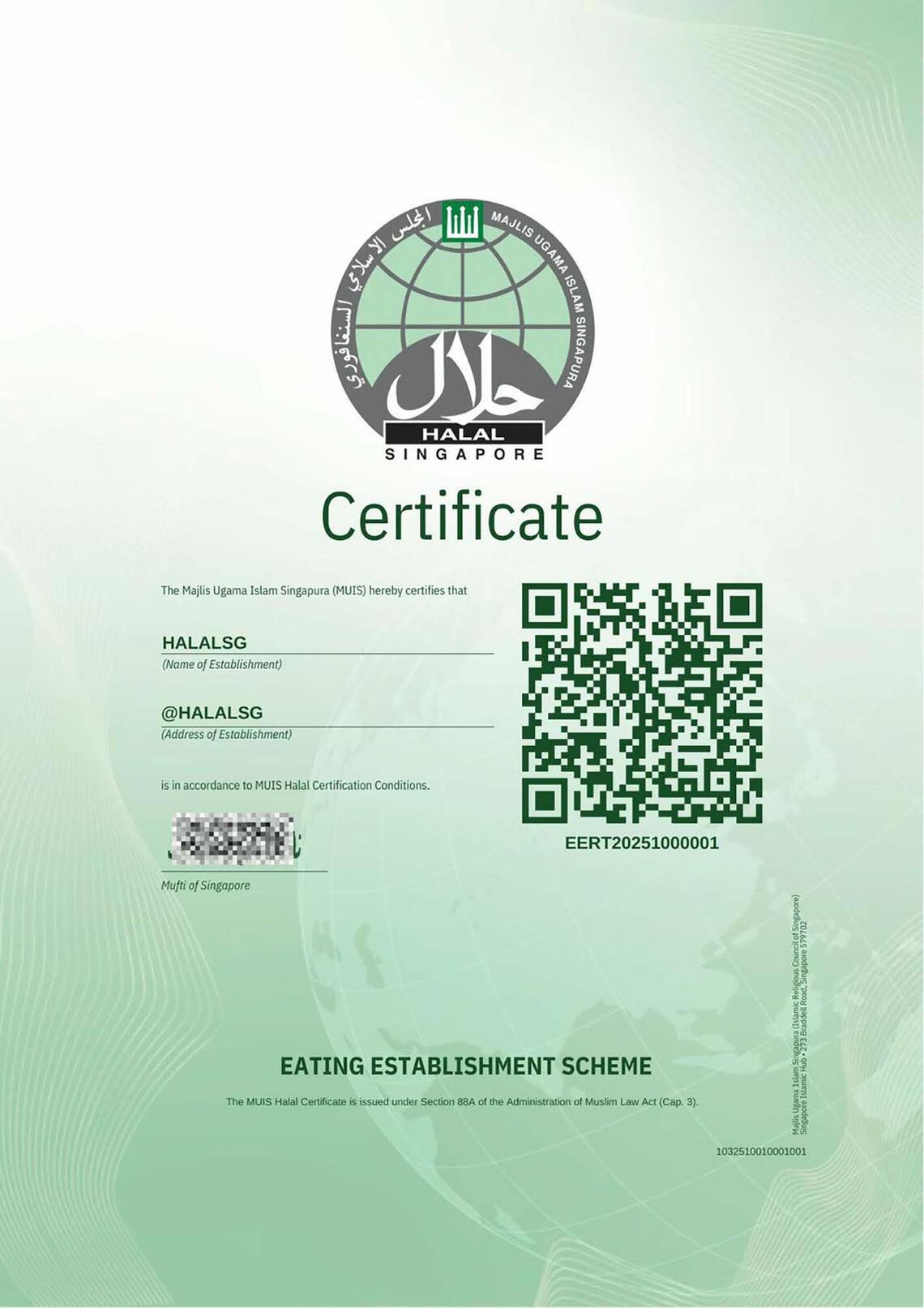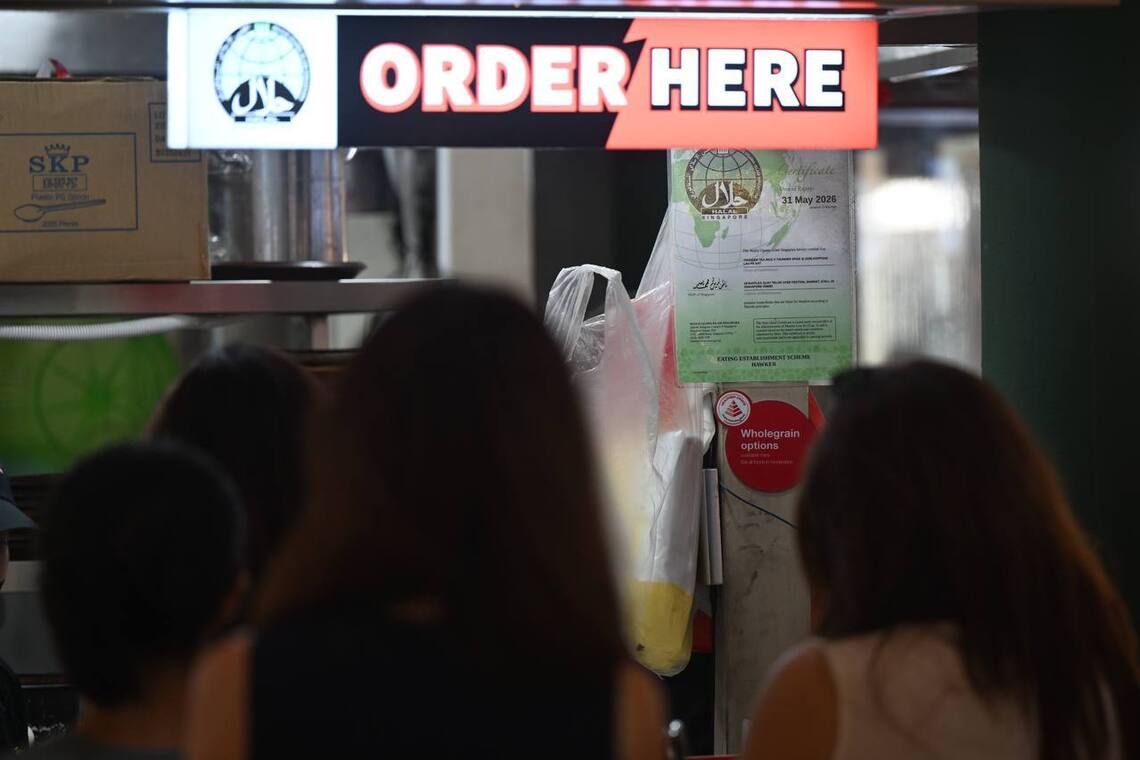SINGAPORE – A new-look halal certificate with a QR code for verifying its validity will be displayed at food establishments from Oct 1.
With the change, businesses no longer need to replace the certificate displayed in their shop each time they renew their certification.
The QR code leads to a page with the establishment’s certification details and validity status, as well as a link to submit a report if the consumer believes the certificate is being misused.
Currently, consumers have to e-mail the Islamic Religious Council of Singapore (Muis) if they have doubts about a shop’s halal certification.
All other halal certificate holders, such as poultry abattoirs and central kitchen facilities, will also be issued fully digital certificates from October.
Food establishments displaying a physical certificate must switch to the new certificate by the second quarter of 2026.
Muis announced the new halal certificate on Sept 24 at the Singapore Halal International Seminar, held at Hilton Singapore.

The new design of Singapore’s halal certificate that food establishments will use from Oct 1.
PHOTO: ISLAMIC RELIGIOUS COUNCIL OF SINGAPORE
It also announced a new online portal to make it easier for foreign halal certification bodies to be recognised in Singapore.
The Foreign Halal Certification Bodies Recognition Scheme is a formal recognition framework developed by Muis in 2011 to ensure halal-certifying bodies that export halal products to Singapore meet Muis’ standards.
Currently, these foreign bodies have to e-mail their paperwork to Muis to check if their halal-certification standards align with Singapore’s. This process would take a few months.
The online portal, operational from Oct 1, will cut down the time taken for applications. It can be accessed at
https://fhcb.muis.gov.sg
To date, 101 foreign halal certification bodies are recognised by Muis. This list will be available on the portal for businesses in Singapore that want to import halal food from other countries.
Acting Minister-in-charge of Muslim Affairs Faishal Ibrahim said at the seminar: “I am glad that Singapore’s halal food certification standards have been a symbol of trust over decades, and hopefully in the wider region.
“They embody Singapore’s unwavering commitment to meet strict quality standards to serve both our diverse local community and global food industries.”
Associate Professor Faishal also said the Muslim community here, which makes up about 15 per cent of the population, needs a steady supply of halal food imports as Singapore is a small nation with limited land and resources.
“This reality makes halal certification critical to our food security,” he said.
The enhanced framework will give local consumers greater confidence in the integrity of Singapore’s imported halal-certified products, he added.
Consumers can also report any suspected fraudulent activity via e-mail at
info@muis.gov.sg
IslamMuhammad Faishal IbrahimMuis

